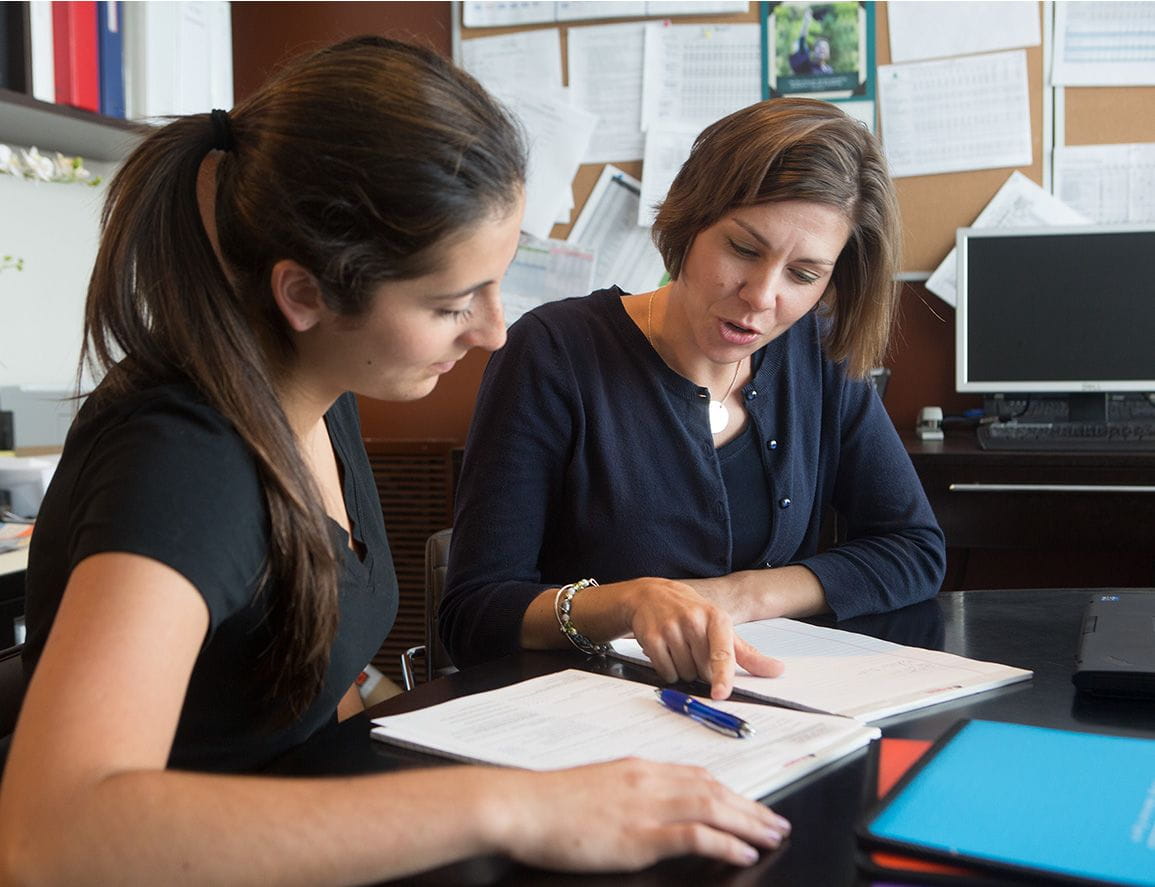To say that the college admissions process makes students and their families “a little anxious” would be an understatement for most people in almost any grade of high school. The climate surrounding college admissions has shifted so drastically in recent years, and for good reason! Many more students are attending four year colleges and universities, and earning a valuable degree in the process. But because most schools are not adding seats to their classrooms, increased competition in admissions has had a rippling effect on many high school students. Additionally, the increased use of the Common Application has undoubtedly resulted in students happily submitting more than the suggested number of applications to schools which they have no intention of applying. More is more in many minds, even though less is more is the wisdom we encourage in so many parts of this process.
I’d like to help identify where the anxiety might come from for many students and parents, and make suggestions for how to anticipate and potentially lessen some of the stress around the college process.
Causes
What causes high school students stress in relation to their future college application process? The list could probably fill a full page, but here are a few common themes we often hear or see in the high school students we speak with.
- Juggling too much!
- Taking classes that are too advanced in subjects outside of their strengths.
- Trying to be great at everything (i.e. school, sports, volunteer work, leadership, etc.).
- Being distracted by social media/texting/technology in general.
- Taking or preparing for standardized tests.
- Not being able to say “No” to parents/teachers/friends, etc. who ask for help or have expectations that add more to a student’s already full plate.
- Worrying about what they don’t yet know about their future (i.e. not knowing what they want to major in or think they want to do as a career).
- Writing the most distinguishing college essay or finding the “best topic” to write about.
- Sleep deprivation (usually as a result of all of the above!).
Stress and anxiety can hit students at any time of high school, but with regard to the college application process, junior year stands out as the most challenging year for students to manage their anxiety. How can parents and teachers help?
-
Help students identify what to prioritize academically and in extracurricular activities.
Are there some clubs that your son signed up for in 9th grade when he didn’t know what to get involved in, but has never shown any real interest in or has no desire to move in to a leadership position? Would his time be better spent in another way that will make him happier but will also add some benefit to his personal profile? He might consider a part-time job, volunteering in an area of interest, shadowing a family member in a potential career or taking up a new sport or hobby. Try to help him find some joy in his school day both inside and outside the classroom. -
Aim for a balanced curriculum.
Even though it might sound like it will “look great to colleges” if you take every AP class in junior or senior year, that is not the right academic curriculum for the majority of high school students. Discuss the importance of “balancing” the effort required to earn a B or higher in advanced classes within the context of how much your daughter juggles outside of the classroom. Would she be better off taking a few advanced courses and scaling back in some areas in order to make sure she is getting some sleep each night? -
Discuss quality vs. quantity
We often hear the “myth” that still exists in high school that “more is better.” In truth, , colleges like to see juniors focus more on their strengths and taking their interests to a higher level rather than adding on lots of little points of involvement that may prohibit them from really learning a new skill or taking on leadership. Try to encourage your student to focus on their strengths or find volunteer work that overlaps with their interests so that they enjoy how their time is spent. -
Manage expectations.
Many students put more pressure on themselves than their parents would ever do, in part because they are trying to please a parent or trying to follow in their parent’s or older sibling’s shoes instead of filling their own. Helping a student identify her strengths and talents, and maximizing the benefit they can get from that talent, is one way you might alleviate some stress your student.
The college admissions process has certainly become more stressful in recent years. But that doesn’t mean that your student needs to succumb to the pressure of that stress. By staying on top of your timeline and making smart choices according to the advice above, you can find academic success while maintaining a healthy balance through the end of high school.





